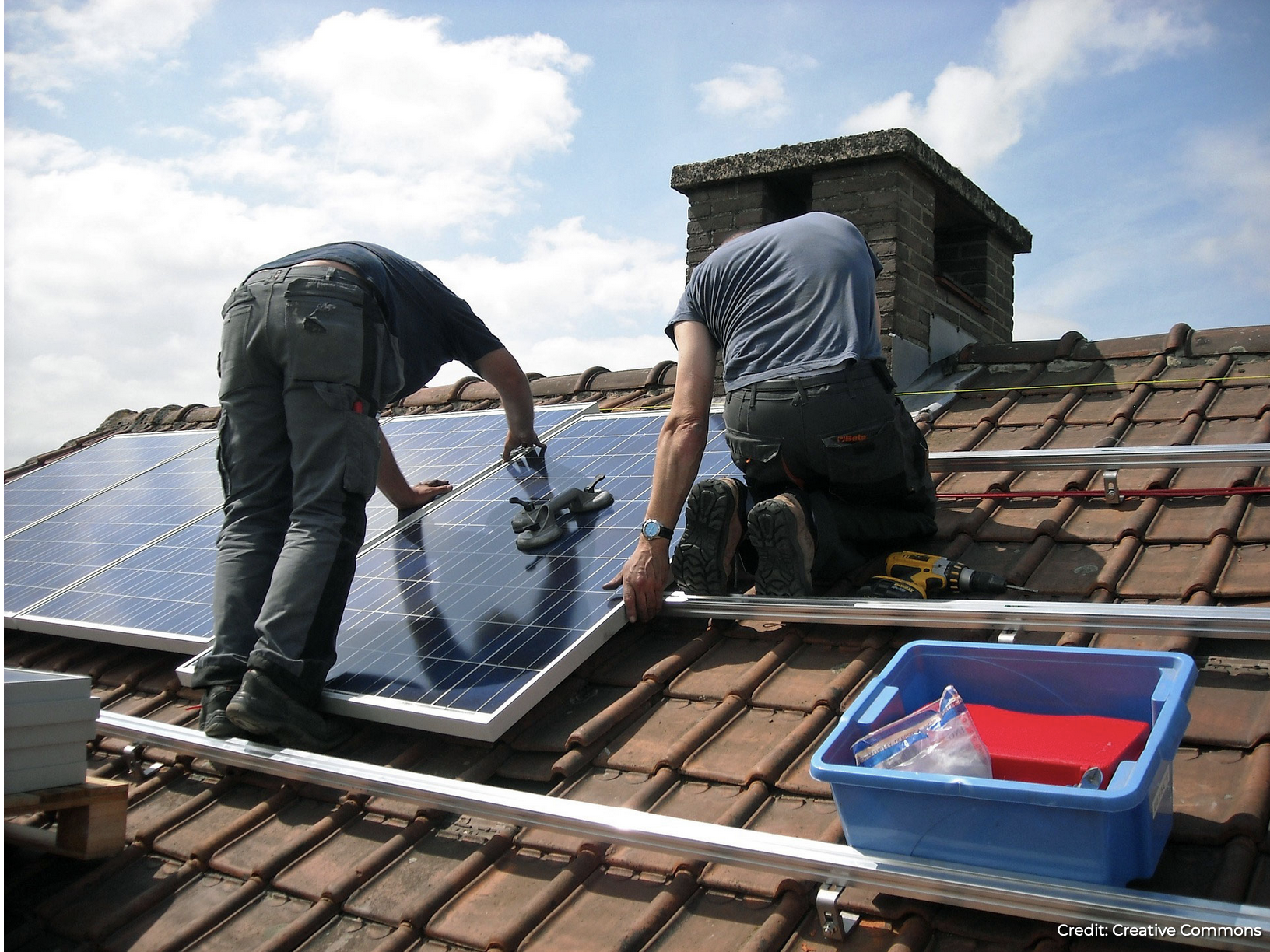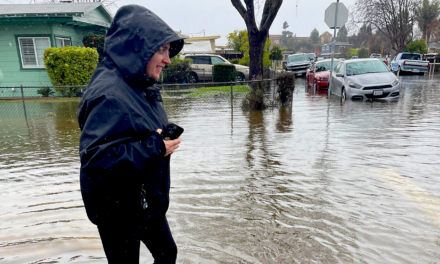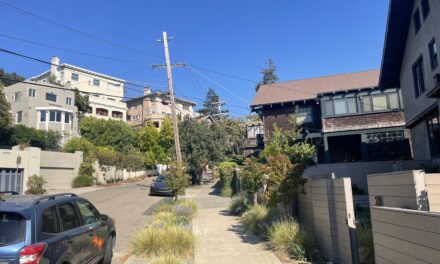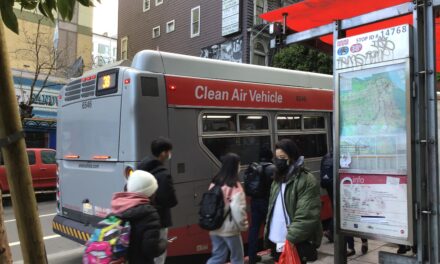Clean Energy, Dirty Practices
A program conceived to help homeowners invest in clean, energy-efficient home upgrades may actually be precipitating some low-income Californians’ collapse into debt and foreclosure. The PACE (Property Assessed Clean Energy) financing program was meant to provide incentives for homeowners to make energy-efficient home improvements without taking on often steep upfront costs. However, predatory, for-profit contracting and financing practices have turned the program into a disaster for low-income homeowners.
In what has become an all-too-common practice, door-to-door salesmen will target low-income residents, often elderly or monolingual Spanish speakers, and convince them to sign contracts for projects like solar panels or energy-efficient windows. However, residents are often left unaware that the financing for the work will come from a property tax assessment and a tax lien on the property, and for-profit contractors often leave work done shoddily or even incomplete. Homeowners are left with vastly increased property taxes and little to nothing to show for it in energy savings.
In one example outlined by the National Consumer Law Center, a door-to-door salesman convinced an elderly, Spanish-speaking homeowner to purchase solar panels. The salesman gave the impression that the homeowner would receive a $10,000 tax credit, their property value would increase, and their energy bill would go down. Documents provided to the homeowner were in English only and buried crucial information the salesman did not express, such as that the homeowner’s income did not qualify her for the tax credit, or that the tax lien put on her property to finance the work would make it difficult for potential buyers to obtain a loan. While her energy bill may have decreased, it was replaced with a $450 monthly tax bill she was unable to pay. She now faces foreclosure.
The UC Berkeley Environmental Law Clinic published a paper underscoring the program’s riskiness for low-income households. Because program eligibility is based on property value instead of credit score, “low-income homeowners may qualify to use PACE even when they would not ordinarily qualify for a loan,” the paper states. “Without energy savings certain to offset or at least meaningfully mitigate PACE assessment costs, additional property tax costs put 3.5 million Californians … at risk of losing their most precious asset.”
The Building Decarbonization Coalition (BDC) does not support PACE as a funding option for low-income customers because of the high-risk nature of the property tax assessments, says Michael Lane of the San Francisco Bay Area Planning and Urban Research Association (SPUR). BDC’s document “Towards an Accessible Financing Solution” suggests, as an alternative, a system of tariffed investments with on-bill cost recovery. Essentially, a utility can make a clean-energy investment on a specific property in their service area, then can recover the cost of the investment through a charge on the energy bill offset by the customer’s new savings on energy use.
Nick Josefowitz of SPUR says that, while programs like PACE are critical for helping all Californians decarbonize their homes, “there needs to be more aggressive regulation to stop the type of fraud that we are seeing with PACE.”
Other Recent Posts
Boxes of Mud Could Tell a Hopeful Sediment Story
Scientists are testing whether dredged sediment placed in nearby shallows can help our wetlands keep pace with rising seas. Tiny tracers may reveal the answer.
“I Invite Everyone To Be a Scientist”
Plant tissue culture can help endangered species adapt to climate change. Amateur plant biologist Jasmine Neal’s community lab could make this tech more accessible.
How To Explain Extreme Weather Without the Fear Factor
Fear-based messaging about extreme weather can backfire. Here are some simple metaphors to explain climate change.
Live Near a Tiny Library? Join Our Citizen Marketing Campaign
KneeDeep asks readers to place paper zines in tiny street libraries to help us reach new folks.
Join KneeDeep Times for Lightning Talks with 8 Local Reporters at SF Climate Week
Lightning Talks with 8 Reporters for SF Climate Week
ReaderBoard
Once a month we share reader announcements: jobs, events, reports, and more.
Staying Wise About Fire – 5 Years Post-CZU
As insurance companies pull out and wildfire seasons intensify, Santa Cruz County residents navigate the complexities of staying fire-ready.
Artist Christa Grenawalt Paints with Rain
Snippet of insight from the artist about her work.
High-Concept Plans for a High-Risk Shoreline
OneShoreline’s effort to shield the Millbrae-Burlingame shoreline from flooding has to balance cost, habitat, and airport safety.
In a Climate Disaster, Your Car Won’t Save You
Fleeing wildfires without a car might seem scary, but so is being trapped in evacuation gridlock — and the hellscape of car-dependency.










